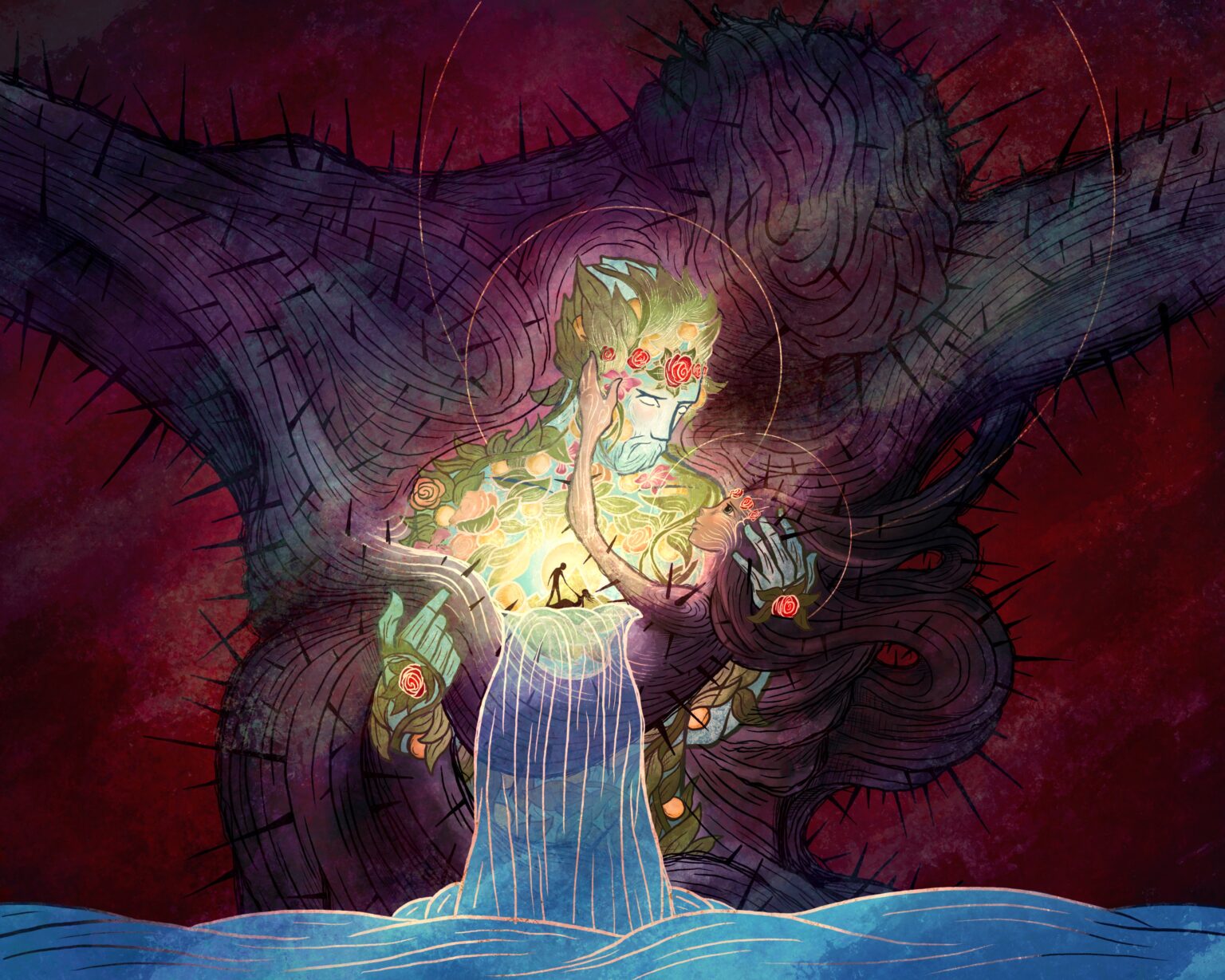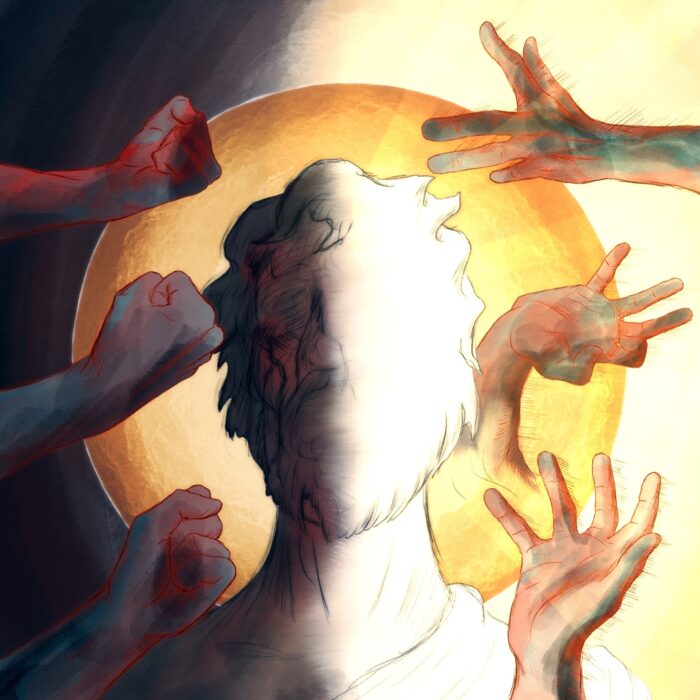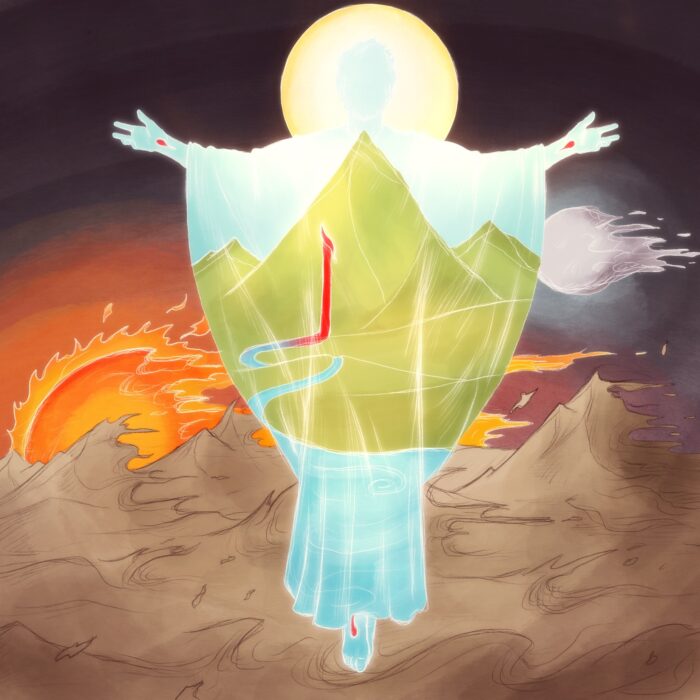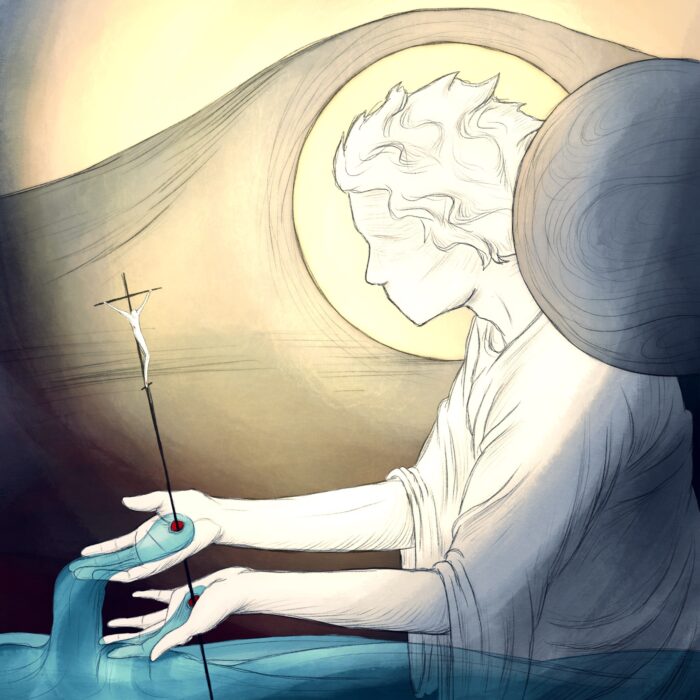Isaiah 51:3, ‘…YHWH comforts Zion; He comforts all her waste places and makes her wilderness like Eden, her deserts like the garden of YHWH; joy and gladness will be found in her, thanksgiving and the voice of song.’
On the cross, our Lord and God enters into, bears, and—indeed—becomes the ‘waste places’ of His Bride’s agonies…He swallows the ‘wilderness’ of her shame, her loss, her barrenness, her sorrow into Himself…He bears the desert thorns of her sin-secured Exile on His brow, receives the wounds of her rebellion in His flesh, weeps the tears of her desolation through His eyes, and exhausts the limits of her Godforsakenness through His experience….
…And then, from that place of Arch-Exile, He rises up again in victory, revealing His agonies—which are hers—to be the witness, the emblem, the present and irreducible reality of His Love; which is to say, His glory and her joy.
It is supremely in *this way* that the agonies, the wounds, the sufferings, the ‘waste places’ and ‘wildernesses’ and ‘deserts’ of His people are comforted….And not merely comforted, but transformed—transformed into Eden, the very garden of God….and what is Eden? It is the primordial place of God’s fellowship with humanity….
Christian—to the extent that the ‘waste places’ of our lives have been borne in and transfigured by the slain and risen Lord to whom we, and all our experiences, are united—our ‘waste places’ have become contexts in which to walk with our Lord and God in open, unashamed, paradisal fellowship….
Yes, the wildernesses of our lives—as they are entered into and overcome in Him—have been, are being, and will surely be transfigured to gardens of intimate meeting with the Risen Lord…gardens in which we, like Mary, may hear our names spoken by the voice of Him who stands within and beyond all our agonies, and hearing, may turn our eyes from the tomb before which our entire being seemed to dissolve in sorrow, and set them upon the face of the One in whom our every sorrow—sown in the field of His crucified flesh—blooms to resurrection beauty, and before whom the voice of our lamentation becomes a hymn of praise and song of eucatastrophic joy.




